第21章 MY FIRST BOOK: 'TREASURE ISLAND' (4)
But the adventures of TREASURE ISLAND are not yet quite at an end.I had written it up to the map.The map was the chief part of my plot.For instance, I had called an islet 'Skeleton Island,' not knowing what I meant, seeking only for the immediate picturesque, and it was to justify this name that I broke into the gallery of Mr.Poe and stole Flint's pointer.And in the same way, it was because I had made two harbours that the HISPANIOLA was sent on her wanderings with Israel Hands.The time came when it was decided to republish, and I sent in my manuscript, and the map along with it, to Messrs.Cassell.The proofs came, they were corrected, but I heard nothing of the map.I wrote and asked; was told it had never been received, and sat aghast.
It is one thing to draw a map at random, set a scale in one corner of it at a venture, and write up a story to the measurements.It is quite another to have to examine a whole book, make an inventory of all the allusions contained in it, and with a pair of compasses, painfully design a map to suit the data.I did it; and the map was drawn again in my father's office, with embellishments of blowing whales and sailing ships, and my father himself brought into service a knack he had of various writing, and elaborately FORGED the signature of Captain Flint, and the sailing directions of Billy Bones.But somehow it was never TREASURE ISLAND to me.
I have said the map was the most of the plot.I might almost say it was the whole.A few reminiscences of Poe, Defoe, and Washington Irving, a copy of Johnson's BUCCANEERS, the name of the Dead Man's Chest from Kingsley's AT LAST, some recollections of canoeing on the high seas, and the map itself, with its infinite, eloquent suggestion, made up the whole of my materials.It is, perhaps, not often that a map figures so largely in a tale, yet it is always important.
The author must know his countryside, whether real or imaginary, like his hand; the distances, the points of the compass, the place of the sun's rising, the behaviour of the moon, should all be beyond cavil.And how troublesome the moon is! I have come to grief over the moon in PRINCE OTTO, and so soon as that was pointed out to me, adopted a precaution which I recommend to other men - I never write now without an almanack.With an almanack, and the map of the country, and the plan of every house, either actually plotted on paper or already and immediately apprehended in the mind, a man may hope to avoid some of the grossest possible blunders.With the map before him, he will scarce allow the sun to set in the east, as it does in THE ANTIQUARY.With the almanack at hand, he will scarce allow two horsemen, journeying on the most urgent affair, to employ six days, from three of the Monday morning till late in the Saturday night, upon a journey of, say, ninety or a hundred miles, and before the week is out, and still on the same nags, to cover fifty in one day, as may be read at length in the inimitable novel of ROB ROY.And it is certainly well, though far from necessary, to avoid such 'croppers.' But it is my contention - my superstition, if you like - that who is faithful to his map, and consults it, and draws from it his inspiration, daily and hourly, gains positive support, and not mere negative immunity from accident.The tale has a root there;it grows in that soil; it has a spine of its own behind the words.Better if the country be real, and he has walked every foot of it and knows every milestone.But even with imaginary places, he will do well in the beginning to provide a map; as he studies it, relations will appear that he had not thought upon; he will discover obvious, though unsuspected, short-cuts and footprints for his messengers;and even when a map is not all the plot, as it was in TREASURE ISLAND, it will be found to be a mine of suggestion.